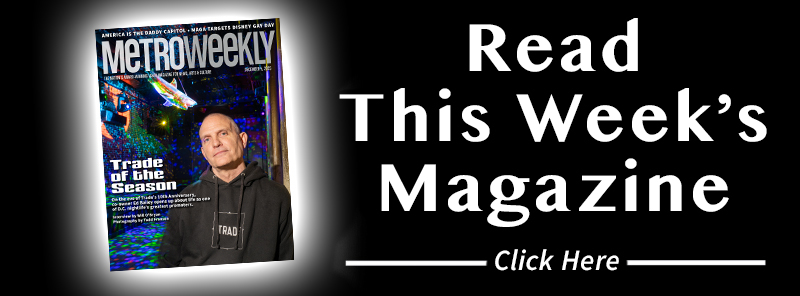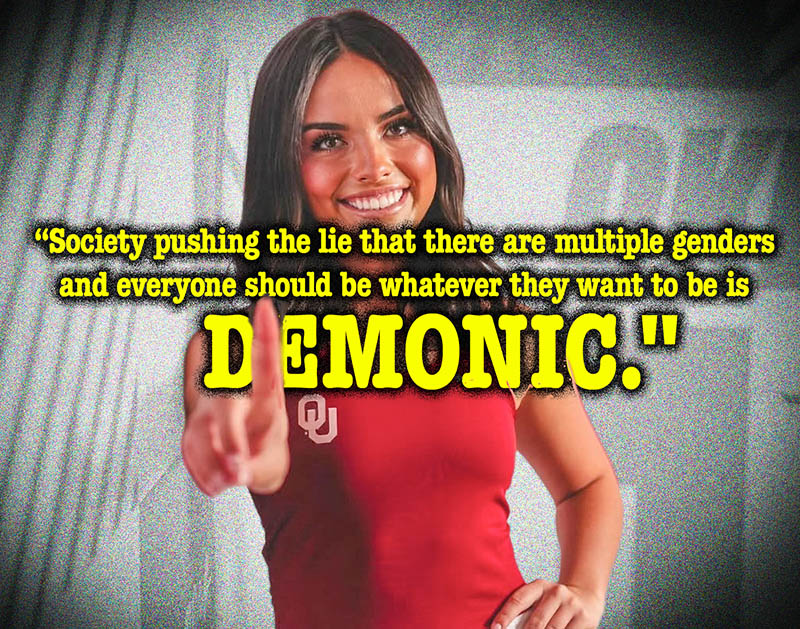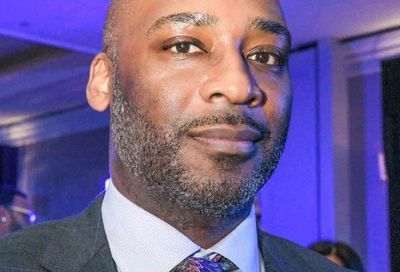Appeals Court Upholds Washington’s Conversion Therapy Ban
A three-judge panel rejected various arguments from a Christian therapist who claimed the law violates his First Amendment rights.

A federal appeals court has upheld Washington State’s ban prohibiting therapists from subjecting minors to conversion therapy. The court rejected a therapist’s claim that the ban violates his right to free speech and unfairly targets him because he is a Christian.
On Tuesday, Sept. 6, the 9th U.S. Circuit Court of Appeals ruled that the law, approved by the state’s Democratic-controlled legislature in 2018, acted rationally and did not violate the First Amendment by imposing the ban, which is intended to protect the “physical and psychological well-being” of children, reports Reuters.
Under the law, which applies equally to all licensed therapists, practitioners who subject minors to the therapy, which purports to change a person’s sexual orientation or gender identity, can be fined, disciplined, or risk having their license to practice suspended or revoked.
But Brian Tingley, a therapist who lives in Tacoma and practices in Fircrest, Washington, said the ban amounted to censorship, seeking to silence him from engaging in “talk therapy” to help clients with “unwanted same-sex attraction” overcome their attractions and help them to live lives consistent with their moral values and religious beliefs.
He also claimed that the law unfairly targeted him as a Christian, due to his religious beliefs opposing homosexuality and believing that gender is fixed at birth.
Washington State Attorney General Bob Ferguson, representing the government, contended that the ban didn’t target “speech,” but rather conduct, and that the state had a vested interest in protecting children from being subjected to a practice that most major medical and mental health organizations have denounced as both psychologically harmful and, more importantly, ineffective at doing what it claims to achieve — namely, radically altering a person’s sexual orientation or gender identity.
A federal judge previously upheld the ban, but Tingley’s lawyers, with the anti-LGBTQ Alliance Defending Freedom, appealed the decision to the 9th Circuit, which ultimately upheld the lower court’s ruling.
“Washington, like other states, has concluded that health care providers should not be able to treat a child by such means as telling him that he is ‘the abomination we had heard about in Sunday school,'” Circuit Judge Ronald Gould wrote on behalf of the three-judge panel in a 58-page decision.
“States do not lose the power to regulate the safety of medical treatments performed under the authority of a state license merely because those treatments are implemented through speech rather than through scalpel,” wrote Gould.
Gould also noted that the 9th Circuit had previously upheld a similar ban on conversion therapy in California in 2014, and argued that the circuit’s precedent was not undermined by a 2018 U.S. Supreme Court decision, which found that California could not require Christian-based “crisis pregnancy centers” that opposed abortion to give women information about how to end their pregnancies.
Gould struck at the heart of Tingley’s chief argument that “talk therapy” is a protected form of speech rather than conduct.
“If Washington’s law is upheld and conversion therapy is considered conduct, Tingley contends, then ‘protesting,’ ‘debating,’ and ‘book clubs’ could be next,” Gould wrote. “This misses the mark.
“What licensed mental health providers do during their appointments with patients for compensation under the authority of a state license is treatment. The work that Tingley does is different than a conversation about the weather, even if he claims that all he does is ‘sit and talk.’
“When a health care provider acts or speaks about treatment with the authority of a state license, that license is an ‘imprimatur of a certain level of competence.’
“Comparing the work that licensed mental health providers do to book club discussions or conversations among friends minimizes the rigorous training, certification, and post-secondary education that licensed mental health providers endure to be able to treat other humans for compensation.
“The health professions differ from other licensed professions because they treat other humans, and their treatment can result in physical and psychological harm to their patients. … The expressive conduct of other professions, even when involving the speech of professionals within the confines of a client relationship, does not run the same risk of harm.”
Gould, on behalf of the court, not only found Washington State’s law to be “facially neutral” and “generally applicable” in the way it is enforced, but outright rejected Tingley’s claims that comments made by Washington legislators during debate over the law rise to a level of anti-Christian “animus.”
“The comments to which Tingley refers do not show a hostility toward religion,” Gould wrote. “Washington State Senator Liias’s comment, in which he ‘speak[s] for [him]self,’ that the bill is directed against ‘barbaric practices,’ goes toward the mode of treatment that constituents described to him — such as using electroshock therapy or inducing vomiting — and not toward the religious belief Tingley and others hold against homosexuality.
“Tingley also claims that another sponsor of the bill, Republican State Senator Maureen Walsh, denounced those who try to ‘pray the gay away,’ which implicitly suggests that the law has an object of inhibiting religion. Tingley takes Senator Walsh’s comments out of context.
“Walsh, whose daughter is gay, was speaking to her personal experience as a parent. She shared the story of a friend’s experience of conversion therapy and used her friend’s words that he thought he could ‘pray the gay away’ but instead found the conversion therapy to be ineffective.
“Soon after that comment, Senator Walsh invoked her own Christian beliefs, that ‘God put us all on the Earth to be here and function as we do.’ She acknowledged that this issue is complicated and said that she understood why some of her colleagues would not vote for the bill. Viewed in context, these comments do not establish the anti-religious bias that Tingley claims.”
Gould struck back at an argument made by Tingley’s legal team — and echoed by anti-transgender activists — that argues that conversion therapy is simply an alternative to the “affirming” model of therapy where a therapist acknowledges a person’s sexual orientation or gender identity.
“We do not accept Tingley’s contention that gender-affirming therapy ‘can lead to the very types of psychological harms’ Washington says it wants to eliminate by prohibiting conversion therapy,” Gould wrote.
“SB 5722 is not targeted toward anecdotal reports of ‘regret’ from ‘sex reassignment surgery’ or the prescription of ‘puberty blocking drugs’ about which Tingley’s complaint warns. Instead, the law is targeted toward the scientifically documented increased risk of suicide and depression from having a licensed mental health provider try to change you. These harms are not the same.”
The 9th Circuit’s decision gives hope to LGBTQ advocates who have long argued against conversion therapy and lobbied for laws restricting it.
More than 20 U.S. states and the District of Columbia have laws banning conversion therapy on the books, which right-wing Christian activists have sought to overturn.
Those attempts have been rejected by the 9th and 3rd Circuits and by federal district courts in various states.
However, in July, the conservative 11th Circuit Court of Appeals boosted the fortunes of the anti-LGBTQ movement when it finalized an earlier decision finding that bans on conversion therapy in a few dozen Florida cities violated the free speech rights of therapists who engage in the “talk therapy” aimed at changing a person’s LGBTQ identity.
Roger Brooks, an attorney from Alliance Defending Freedom who is part of Tingley’s legal team, told Reuters his client plans to appeal the decision.
The legal team’s options include asking for the full 9th Circuit to rehear the case, or appealing to the U.S. Supreme Court, in hopes that the high court’s justices will view the law as regulating speech, rather than conduct.
“The government has no business censoring conversations between clients and counselors,” Brooks said.
Matthew Shurka, the co-founder of Born Perfect, a survivor-led program of the National Center for Lesbian Rights that seeks to end the practice of conversion therapy on minors by passing laws banning it in all 50 states, praised the court’s ruling.
“Laws like Washington’s are critical to protecting minors and parents from being harmed by unethical therapists who falsely claim to be able to prevent a child from being gay or transgender,” Shurka said in a statement.
“As a survivor of more than five years of conversion therapy, I know firsthand how damaging these practices are to young people and their families. The medical community has rejected these practices because they are harmful, ineffective, and unnecessary.
“Being LGBTQ is not a mental health disorder. Trying to change such a fundamental aspect of a person’s identity is not only impossible, it is profoundly dangerous and causes serious, lasting harm.”
Support Metro Weekly’s Journalism
These are challenging times for news organizations. And yet it’s crucial we stay active and provide vital resources and information to both our local readers and the world. So won’t you please take a moment and consider supporting Metro Weekly with a membership? For as little as $5 a month, you can help ensure Metro Weekly magazine and MetroWeekly.com remain free, viable resources as we provide the best, most diverse, culturally-resonant LGBTQ coverage in both the D.C. region and around the world. Memberships come with exclusive perks and discounts, your own personal digital delivery of each week’s magazine (and an archive), access to our Member's Lounge when it launches this fall, and exclusive members-only items like Metro Weekly Membership Mugs and Tote Bags! Check out all our membership levels here and please join us today!



























You must be logged in to post a comment.